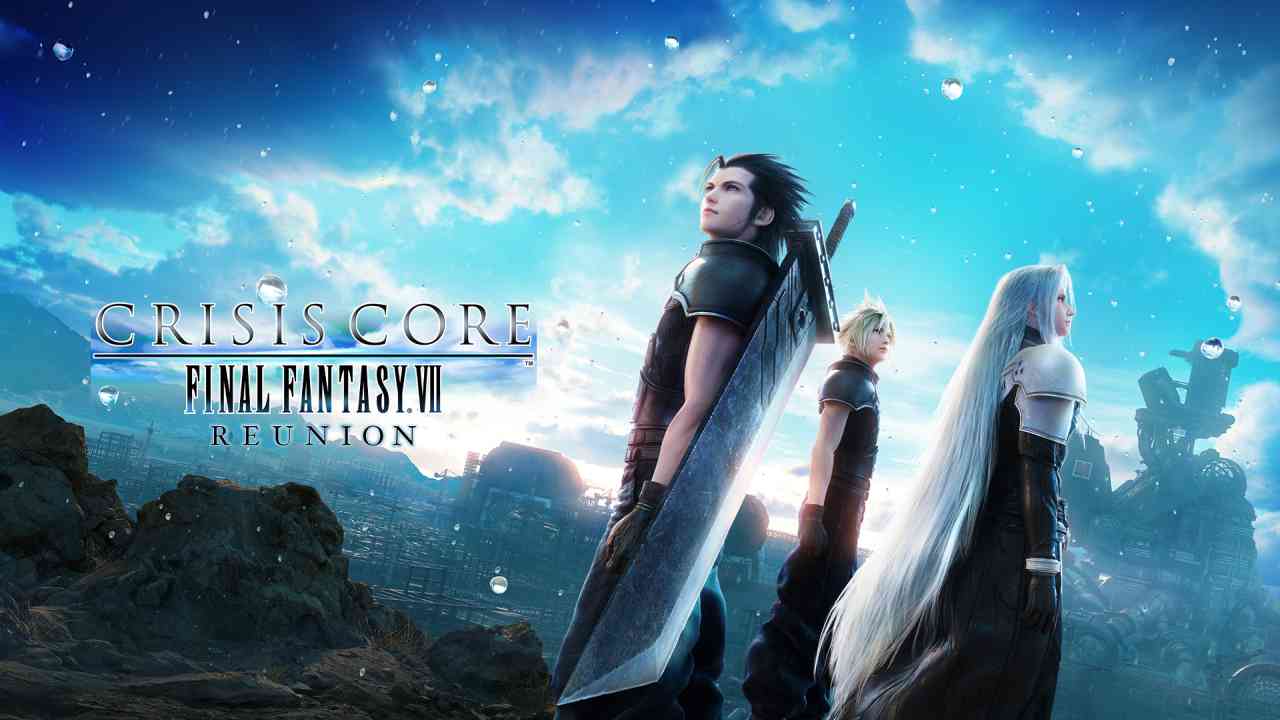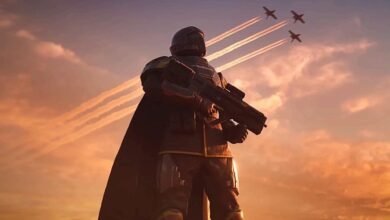Crisis… averted?
Yes, Gackt’s still in it… I don’t know much, but I know enough to confirm that info right off the rip.
ARCADE ARCHIVES
Marvel Land
- Platform: Nintendo Switch, PlayStation 4
- Price: $7.99 / €6.99 / £6.29
- Publisher: Hamster / Namco
What’s this? A bright and colorful side-scrolling action game set in an amusement park-esque world, originally developed and distributed in arcades by Namco in 1989, with an arranged conversion produced for the Sega Genesis/Mega Drive (renamed Talmit’s Adventure in some territories) and an emulated reissue for the Japanese Wii Virtual Console Arcade in 2009; players are tasked with controlling Prince Taco on a world-saving quest across five areas, packed with an abundance of flashy gimmicks and punctuated by minigame-esque boss encounters, as well as star-studded bonus stages packed with famous Namco characters.
Why should I care? While most of Namco’s arcade games of this era stood out for their uniqueness, Marvel Land is an utterly conventional late-’80s platformer, and I mean that as a compliment: difficulty aside, perhaps, it’s definitely something that a more console-inclined player could easily gel with, and those who are familiar with the Mega Drive version are bound to be pleasantly surprised by all the flashy rotation effects that weren’t present in the home port (and possibly a little disappointed by how much additional content from the MD version isn’t present here).
Useless fact: Two of the more obscure Namco character cameos can be seen standing by the entrance of the first stage in each new area: the tea-serving robot Kyuji-kun and the receptionist robot Uketsuke Komaji, two real robots produced by Namco that existed in their old head office; incidentally, Komachi was restored in recent years and is back to serving as a receptionist in one of their modern buildings.
G-MODE ARCHIVES+
Megami Tensei Gaiden New Testament: Last Bible, Megami Tensei Gaiden New Testament: Last Bible II – Hajimari no Fukuin & Megami Tensei Gaiden Last Bible New Testament III: Mugen no Eiyuu
- Platform: PlayStation 4/5, Nintendo Switch, Xbox (worldwide)
- Price: $17.99 or equivalent each (currently %10 off), ~$48 or equivalent (bundle, currently ~25% off)
- Publisher: G-MODE / Atlus
What’re these? The complete trilogy in the “Shinyaku/New Testament” sub-series of Atlus’ Megami Tensei Gaiden: Last Bible RPG series, originally developed and released exclusively on Japanese feature phones in the mid-to-late ’00s and recently reissued on the Japanese Switch eShop; they’ve made the jump to Steam but the games themselved remain entirely untranslated.
Why should I care? Presuming you can read them, you’re in for a series that, especially by the third game, can fully acquit itself as a genuine full-bodied RPG experience comparable to games found on handheld gaming hardware of the day… and, if you can’t read them, you might at least take solace in the fact that their wider global accessibility increases the likelihood of a fan translation.
Useless fact: The internal structure of these reissues seems to be closer to that of a decompilation than emulation, which may better facilitate a fan translation, but even so, that’s a lot of work…
PLAYSTATION PREMIUM
Classics Catalog update, December ’22: Oddworld: Abe’s Exoddus (PS), Pinball Heroes & Ridge Racer 2 (PSP), Heavenly Sword (PS3)
What’re these? The second game in Oddworld Inhabitants’ enduringly popular puzzle adventure series, a collection of pinball tables themed around popular Sony games circa 2010, the second of two PSP-exclusive Ridge Racer games and the PS3’s early-era large-scale action game that inexplicably established Ninja Theory as a go-to studio for third-person melee combat games.
Why should I care? Aside from beggars not being choosers, you mean? Ridge Racer 2 was one of the final traditional Ridge Racer games released before Namco decided to take the series in all manner of ill-advised directions and one that handheld-averse players ought to take the time to try, and Abe’s Exoddus is substantially different in both feel and tone to its alleged reimagining, the recently-released Oddworld: Soulstorm, so newcomers might enjoy A/B’ing them. As for Heavenly Blade, it’s a cloud-streamed game that already has a zillion frames of input lag when played locally, so all I can say is “good luck”. (I have not played or even seen Pinball Heroes, and I don’t believe anyone else who says they have.)
Useless fact: The Japanese versions of the PSP Ridge Racer games differentiate themselves from the mainline titles by being named Ridge Racers; why that differentiator was dropped for the global versions is anyone’s guess.
OTHER
Akai Katana Shin
- Platform: PlayStation 4, Xbox, Nintendo Switch, PC via Steam (worldwide)
- Price: $29.99 or equivalent
- Publisher: City Connection ./ Cave
What’s this? A new port of Cave’s horizontal ninjas-meets-vintage-Japanese-military horizontal shooting game, originally released in arcades in 2010, revised into a “shin” version and augmented with extra arrange modes for Xbox 360 in 2011 and reimported to arcades in 2012; this version, produced by City Connection’s “TAKExOFF” subsidiary, is based on the X360 version and retains all the modes from that release, with further polish to ensure the accuracy of the original arcade mode, as well as online leaderboards and a brand-new arranged soundtrack included alongside the original and “shin” soundtrack options, originally composed by the late, great Ryu Umemoto of YU-NO fame.
Why should I care? Akai Katana was Cave’s final original arcade shooting game, and while the combination of being a horizontal game — not always the most ideal orientation for bullet hell games — and one with a slighty more complex game system might make it a little less immediately accessible than other comparable games, the home versions have a lot of perks like genuine 16:9 modes and extended voiced character dialog that serve to make them feel less like arcade games plonked directly onto a console, and this game’s relatively low profile among other Cave shooters is in no way an indicator of lesser quality. (I should also reiterate that the team behind this port is the one branch of City Connection that has reliably produced accurate and relatively lag-free ports, so you can rest assured that it hasn’t been ruined in any obvious or immediate way.)
Helpful tip: Due to publisher/license-related issues, the localization for this port differs from that of the global X360 port released a decade ago; subsequently, this port uses Japanese names for the different modes and is missing the ever-helpful tutorial videos, but you can find those videos online here.
Crisis Core -Final Fantasy VII- Reunion
- Platform: PlayStation 4+5, Xbox, Nintendo Switch, PC via Steam (worldwide)
- Price: $49.99 or equivalent
- Publisher: Square-Enix
What’s this? A high-definition remaster of the Final Fantasy action-RPG prequel Crisis Core, originally released exclusively for the PlayStation Portable in 2007; this TOSE-produced remaster boasts new HD character models and other assets, a rearranged soundtrack, full voice acting in both English and Japanese featuring most of the cast from Final Fantasy VII Remake and significant alterations to the battle system to bring it somewhere in the vicinity of FFVII:R, with support for up to 4K/120FPS resolution/framerate.
Why should I care? I’m not a FF guy nor a PSP guy so I have zero personal experience with this game, but even the briefest comparison with the original PSP game suggests that this new version goes well beyond what one might typically expect from a “remaster”: stylistic changes aside, the new visuals are far beyond mere retextured PSP assets, and the contentious Kingdom-Hearts-but-turn-based-but-not-really combat has been resculpted into somethat that genuinely feels like a truncated adaptation of FFVII:R‘s combat, so it should ideally help newcomers segue between both games, as well as allow those who disliked the original to refesh themselves on the story without too much hassle.
Helpful tip: For whatever reason, select cutscenes do not run in-engine and are instead rendered via upscaled video footage taken from the PSP game, hence both their incongruence with the remaster’s visuals and their strangely poor performance relative to the actual game — they don’t look off due to some technical deficiency, in other words.
ROM HACKS & FAN TRANSLATIONS
b.l.u.e. Legend of Water (PlayStation) English translation patch by Hilltop Works
Developed by future Mario Party factory CAProductions and published by Hudson in 1998, this exploratory adventure game mixes dialog-driven, choice-based marine base scenes with underwater 3D sections that allow players to navigate and unravel the mystery of each dungeon-like area with the assistance of various partner creatures; it’s not nearly as tense as one might fear, and it’d make for a cozy, brief playthrough over the holidays, so why not give it a shot? (Don’t hesitate to show your appreciation to the translators, either.)





![The Gate – A WIP action-adventure game inspired by Impossible Mission and Project Firestart for the Amiga [UPDATE] The Gate – A WIP action-adventure game inspired by Impossible Mission and Project Firestart for the Amiga [UPDATE]](https://gamingnewsmag.com/wp-content/uploads/2026/02/a6404cb3bdd68a99-390x220.jpg)
